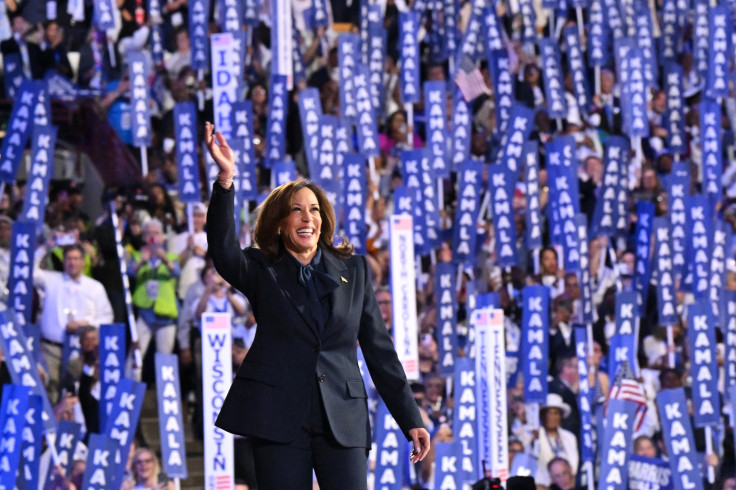
Vice President Kamala Harris made history this year as the first Black and Asian American woman to lead a major party ticket. If she wins, she will break another glass ceiling becoming the first woman to be President. As Election Day approaches, a new poll suggests that despite the significance of her nomination, women's views on Harris are strongly colored by partisanship and ideology.
The poll was published by the Alliance for Black Equality, an advocacy organization that seeks to target Black swing voters in battleground states. The study was conducted between Sept. 5-10 among 1,487 women at the national level with an oversample of Black and Latina women.
The study shows that Harris' historic "first" potential is highly correlated with partisanship. Among Democrat-identified respondents, 81% said it was very or somewhat important to them to see Harris become the first woman president of the United States. Conversely, only 13% of Republican-identified respondents said the same, with 17% feeling indifferent.
Nevertheless, when asked whether Harris' rise shows young girls that anything is attainable in America, a sentiment of agreement was more widespread. For that question, 78% of Democrat respondents strongly or somewhat agreed, while 33% of Republican respondents said the same.
In relation to the implications of her candidacy, Black women are much more likely to see Harris (and women of color) as important leaders for democracy.
In fact, the study shows that 61% of Black women believe that because of their experiences, women of color should lead the movement for American democracy. Meanwhile, 38% of Latina women, 49% of Asian and Asian American women, and 35% of white women think the same.
Likewise, the vast majority (83%) of Black women believe Harris' nomination is the culmination of tradition of women of color improving democracy. By comparison, 43% of Latinas, 55% of Asian and Asian Americans, and 45% of white women believe the same.
The perceptions on her candidacy come as Harris has strongly campaigned on issues pertinent to women, such as reproductive rights, but has barely leaned into the historical implications of her potential presidency.
The Vice President often talks about her parents' roots, but it's usually in the context of the values they taught her or to underscore her middle-class upbringing. At the same time, despite her 20 years of public life, she has never centered her campaigns on race and gender, and even often seems annoyed when asked about it, NPR reports.
In her interview with CNN's Dana Bash, Harris spoke about a viral picture of her grand-niece watching her acceptance speech at the Democratic National Convention. For many, the photo spoke to the idea of Harris as someone who would be a first. But when the news anchor asked Harris what it means to her, the vice president sidestepped the question.
"Listen, I am running because I believe that I am the best person to do this job at this moment for all Americans, regardless of race and gender," she said.
© 2025 Latin Times. All rights reserved. Do not reproduce without permission.





